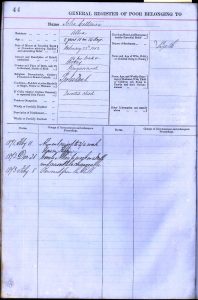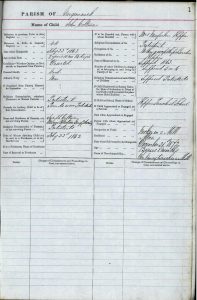The entry for John Coltman in the Gargunnock Parish register of the poor covering 1862 looks extremely sparse, with very little personal information about him. The record gives his age, religion, the assistance granted to him and his place of birth and says that he is a ‘deserted child’ but there is no background information. However, the fact that he is on his own in life means that he has an entry in the Parish ‘Children’s Separate Register’. This record refers to children who are separated from their parents either because they have been orphaned or because their parents have abandoned them. The abandonment of children was not uncommon particularly in cases where a mother died in childbirth and the father was left with children he could not supervise owing to the need to work. Some children were abandoned when their mother remarried after being widowed and the new husband was not prepared to raise her children from her first marriage. In the absence of a structured system of child care, these children ended up being looked after by the parish authorities to avoid them becoming street children, vulnerable to crime and prostitution.
The children’s separate register for Gargunnock does indeed have an entry for John, and this gives much more detail about his circumstances. The names of his parents are given; his mother, Marion Robertson is given as dead, his father as John Coltman. It is likely that John senior could not look after his son or afford to pay anyone else to do this. People in this situation without family to care for their children were often forced to let them go ‘on the parish’. John is boarded with a Mrs McFarlane in Kippen. Her occupation is given as ‘nothing except keeps boarders’. Some people made a living by looking after orphans for the parish authorities. If someone was reliable then they would have several children placed with them in an early fostering type arrangement.
John is recorded as going to school in Kippen. He leaves school in December 1872 when he goes to work in a local mill. He is considered old enough to work and has no choice as the parish authorities will no longer support him; he was 3 months short of his 14th birthday. Life was not easy for children alone in the mid 19th century and they were forced to grow up quickly. The records of the Scottish Poor Law are a great source of informaiton for children who may not appear in any other records.

